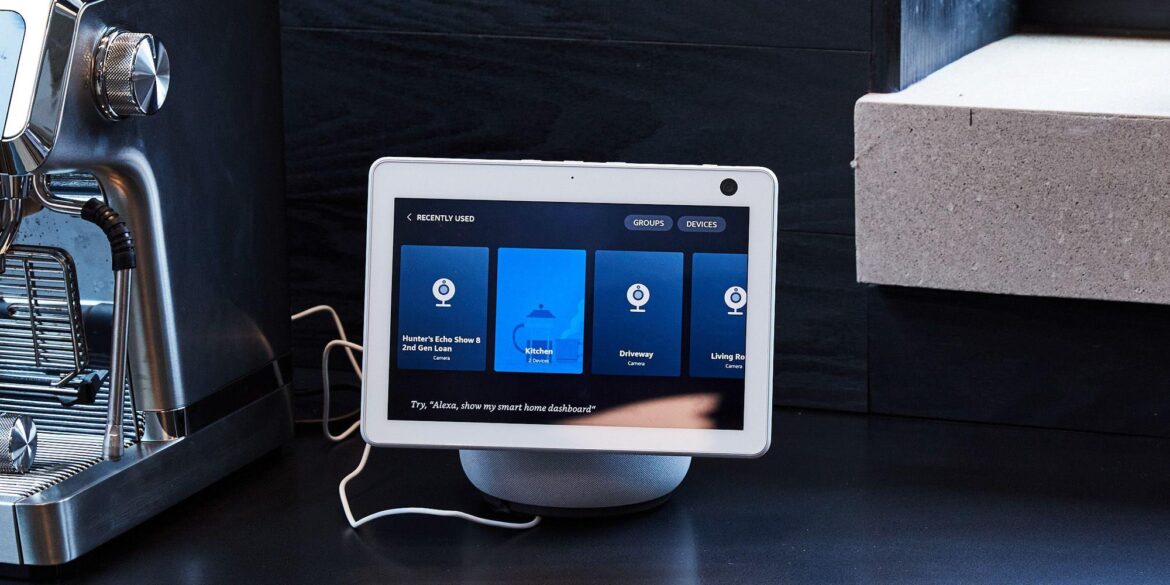In an era where convenience reigns supreme,smart home hubs have emerged as the indispensable command centers of modern living. Imagine effortlessly controlling every facet of your home—from lighting and temperature to security systems and entertainment—wiht just a few taps or the sound of your voice. Yet, with a myriad of devices and platforms jostling for attention, how do you ensure seamless integration in your daily routine? This article delves into the best smart home hubs on the market, exploring their features, compatibility, and user experiences. Whether you’re a tech novice taking your first steps into home automation or a seasoned enthusiast looking to enhance your setup, a well-chosen hub can centralize your devices efficiently, transforming your living space into a synchronized sanctuary of comfort and innovation. Join us as we navigate the landscape of smart home hubs, helping you unlock the full potential of your connected home.
Exploring the Key Features of Smart Home Hubs
Smart home hubs serve as the central nervous system of your connected devices, allowing you to manage a myriad of technologies from a single interface. One of the standout features of these hubs is their compatibility with a wide range of devices from various manufacturers. This interoperability means you can control lights, thermostats, locks, and other gadgets, regardless of brand. Many smart home hubs also support voice control,enabling seamless interaction through popular digital assistants like Amazon Alexa or Google Assistant,making your home smarter and your life easier.
Another significant feature to consider is automation capabilities. Smart home hubs allow users to create custom routines and schedules, orchestrating the behavior of devices to adapt to your lifestyle. For instance, you can set up a routine where your lights dim and the thermostat adjusts just before your usual movie night. Additionally, the ability to monitor your home remotely adds an extra layer of convenience and security. Many hubs come equipped with mobile apps, providing users with real-time access to their devices and notifications of any unusual activity. This combination of compatibility, automation, and remote monitoring truly elevates the smart home experience.

top Smart Home Hubs for Seamless Device Integration
When it comes to creating a cohesive smart home experience, selecting the right hub is crucial.The most effective smart home hubs facilitate dialog between diverse devices and ecosystems, allowing you to manage them from a single interface. Popular options include:
- Samsung SmartThings Hub – A versatile platform supporting a wide range of devices,both Zigbee and Z-Wave compatible.
- Amazon echo Plus – Combines a smart speaker with a built-in hub, making it easy to control devices via voice commands.
- Google Nest Hub – Ideal for those deeply integrated into the Google ecosystem, with robust integration with Nest and other smart devices.
- Home Assistant – An open-source solution that enables advanced customization and is ideal for tech-savvy users.
Each hub has its strengths, ensuring you can find one that matches your specific needs. For those who value compatibility, consider the following features:
| Hub | Compatibility | Voice Assistant |
|---|---|---|
| Samsung SmartThings | Zigbee, Z-Wave, Wi-Fi | Bixby, Alexa |
| Amazon Echo Plus | Zigbee, Bluetooth | Alexa |
| Google Nest Hub | Wi-Fi, Bluetooth | Google Assistant |
| Home Assistant | Various, customizable | Compatible with multiple assistants |

Comparing Compatibility Across Popular Smart Home Platforms
When it comes to maximizing your smart home experience, understanding the compatibility between different platforms is crucial. The most popular smart home ecosystems include Amazon Alexa, Google Assistant, and Apple HomeKit. Each platform offers a unique set of compatible devices that can enhance your home automation. Here’s a brief overview of their compatibility:
| Platform | Compatible Devices |
|---|---|
| Amazon alexa |
|
| google Assistant |
|
| Apple HomeKit |
|
To get the most out of your smart home setup, it’s essential to choose a hub that integrates well with the devices you want to use. As an example, if you’re heavily invested in Amazon products, an Alexa hub is highly likely your best bet. Conversely, for Apple enthusiasts, leveraging HomeKit-compatible devices ensures seamless integration with iOS devices. Here are some additional factors that can affect your choice:
- Interoperability: Check if the platforms support third-party integrations.
- User Interface: Consider how intuitive and accessible the app or control panel is.
- Future Updates: Look for platforms that frequently enhance their compatibility and security.

Maximizing efficiency: Tips for Optimizing Your Smart Home Hub Setup
To achieve a seamless and efficient smart home experience, start by choosing the right hub that aligns with your current devices and usage needs. Some popular hubs, such as samsung SmartThings and Hubitat, offer extensive compatibility with various brands and protocols. Assure that the hub supports Zigbee, Z-Wave, or Wi-Fi devices to maximize integration. Once you’ve selected the ideal hub, organize your devices into groups or rooms within the hub’s app. This setup allows for easier management, enabling you to control entire rooms or functionalities with a single command.
Next, consider implementing automation routines to streamline your day-to-day activities.Create scenes that can adjust multiple devices simultaneously—like dimming lights, setting the thermostat, and locking doors with a single command. Additionally, utilize voice control features with compatible assistants such as amazon Alexa or google Assistant to enhance convenience.Regularly update your hub’s firmware to access the latest features and security enhancements. To provide a clearer view of your setup’s efficiency, refer to the following table summarizing essential features:
| Feature | Hub 1 | Hub 2 | Hub 3 |
|---|---|---|---|
| Device Compatibility | High | Medium | High |
| Automation Capabilities | Advanced | Basic | Advanced |
| Voice Assistant Support | Alexa & Google | Google Only | Alexa Only |
To Conclude
As we navigate the fascinating world of smart home technology, the importance of a robust hub becomes increasingly clear. A well-chosen smart home hub not only simplifies your daily routines but also seamlessly integrates your devices, turning your house into a cohesive, intelligent system. Whether you prioritize compatibility, user-friendliness, or advanced features, there’s a hub out there to elevate your home’s ecosystem.
As we wrap up our exploration of the best smart home hubs, remember that the journey towards automation is not just about the devices you choose, but how they work together to create a harmonious living surroundings. We encourage you to consider your unique needs and preferences, dive into user reviews, and perhaps even trial a few options.
After all, the heart of a truly smart home lies not just in the technology itself, but in the ease and efficiency it brings to your everyday life. With the right hub at your command, the future is not just bright—it’s brilliantly connected. Happy narrowing down your choices, and may your smart home journey led to a more comfortable, convenient, and connected life!





